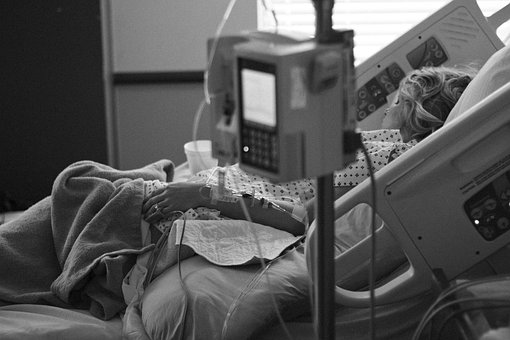Mar 11
2020
4 Nursing Technologies That Are Transforming Patient Care
There isn’t a single area of modern life that hasn’t been transformed by technology in the previous decades, and healthcare is no different. Doctors and nurses have always relied on a variety of technology to fulfill their roles, and this isn’t going to change anytime soon. Below are four types of technology that we expect to play a significant role in the evolution of nursing over the next few years.
Automated IV Pumps
IV pumps automatically deliver both nutrients and medicine directly into the patient’s veins. They are one of the most common and most important pieces of hospital equipment. Without IV pumps, a nurse’s work would truly never be done. The next generation of automated IV pumps will be much more capable than those that have come before and offer a number of advantages for nurses.
- Automatically change feeds: Nurses do a lot of important work, but the majority of their day is spent completing relatively mundane tasks. Changing patients’ IV lines over is one such task. With an automated IV pump that can automatically switch the lines over for a nurse, there is one less thing for them to juggle. Nurses are only human, and they will occasionally make mistakes and forget things. An automated IV pump means that even if they forget to change a patient line, the patient will not suffer.
- Save time: IV drips need to be changed according to the patient’s needs, and doing so usually ties up a nurse for at least a couple of minutes. If a nurse has a number of patients to see, this time quickly adds up. Having the feeds change automatically saves nurses time and enables them to focus on other essential tasks.
- Standardized procedures: Different hospitals have different procedures and policies in place for ensuring that patients’ IV lines are changed when they need to be. While there are several different automated IV pumps on the market, each of which works a little differently, the introduction of automated systems enables hospitals to standardize their procedures more closely.
Digital Study Aids
Education can quickly get expensive, regardless of the degree that you are studying. But nursing can be particularly expensive, especially at the higher levels, owing to the expensive reading materials and textbooks that are required. Fortunately, there are now ways of bringing those costs down, especially if you are willing to embrace digital learning tools.
- Ebooks: Textbooks aren’t cheap. In fact, they are the bane of many students’ existence. Even if you purchase textbooks second-hand, they can still set you back a surprising amount of money. However, if you are willing to embrace ebooks and digitized textbooks, you can obtain even the more expensive text at an affordable price.
- Revision apps: Whether you are looking to learn something new entirely, or you want to brush up on your existing knowledge, there is now a plethora of apps that enable you to do just that. Nursing is no exception to this; if you look in any of the major app stores, you will find numerous education and reference apps designed for nurses. These include digitized databases of common drugs and their recommended dosages and interactive guides to human anatomy. Even the premium reference apps tend to be significantly cheaper than a textbook or physical reference guide would be.
- Online degrees: One of the big advantages of pursuing a career in nursing is that you can advance through the ranks at your own pace. Studying isn’t cheap, but the advent of online degrees has made university courses both more accessible and more affordable. You can now study all levels of your nursing degree online. For example, if you have already earned your BSN, you might want to consider enrolling in one of the many online BSN to MSN programs that are now available. Studying online is cheaper than a campus course, and you can complete your studies over a longer period.
